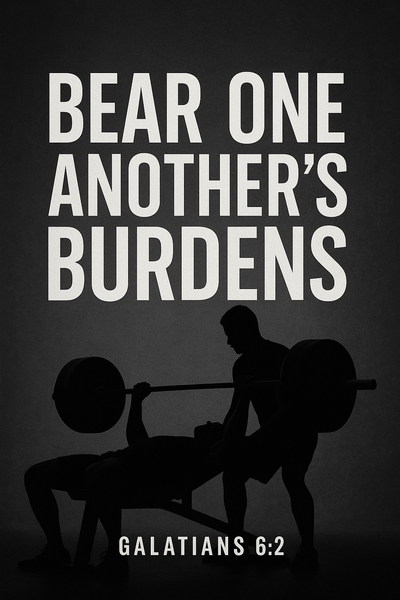Bearing or Enabling?
Galatians 6 tells us, “Brothers, suppose someone is caught doing something wrong. You who have the Spirit should set him right—but in a spirit of humility, keeping an eye on yourselves so that you won’t be tempted too. Bear one another’s burdens— in this way you will be fulfilling the law of the Messiah… for each person will carry his own load” (Gal. 6:1–5, CJB).
That passage holds two truths together. On the one hand, we are called to come alongside our brothers and sisters, to bear their burdens in love. On the other hand, we’re reminded that each one must also carry their own load. So here’s the real question for us today: are you truly bearing your brother’s burdens, or are you enabling them?
Think of a spotter in the gym. A good spotter doesn’t do the lift for you. He gives just enough help so you can finish the rep yourself. That’s what bearing a burden looks like. It’s prayer, encouragement, accountability, maybe even a little correction. But it still allows the other person to do the work that strengthens them. If the spotter takes all the weight every time, the lifter never grows stronger. The same is true in our faith. If we always step in to carry everything for someone else, we may actually be keeping them from the very growth God wants for them.
Enabling happens when we excuse sin, avoid correction, or keep rescuing someone from the consequences of their choices. Bearing a burden means standing with them in love, praying with them, speaking truth with gentleness, and walking beside them as they grow. Rebuke and accountability are part of love too, because love wants to see our brothers and sisters become strong in Christ.
So today, ask yourself: am I helping my brother grow stronger in his walk, or am I keeping him weak by carrying the weight that was his to carry? Bearing is love. Enabling is avoidance dressed up as compassion. Don’t be afraid to spot with truth and love. That’s how we fulfill the law of the Messiah.
-Rev Carlos Figueroa

